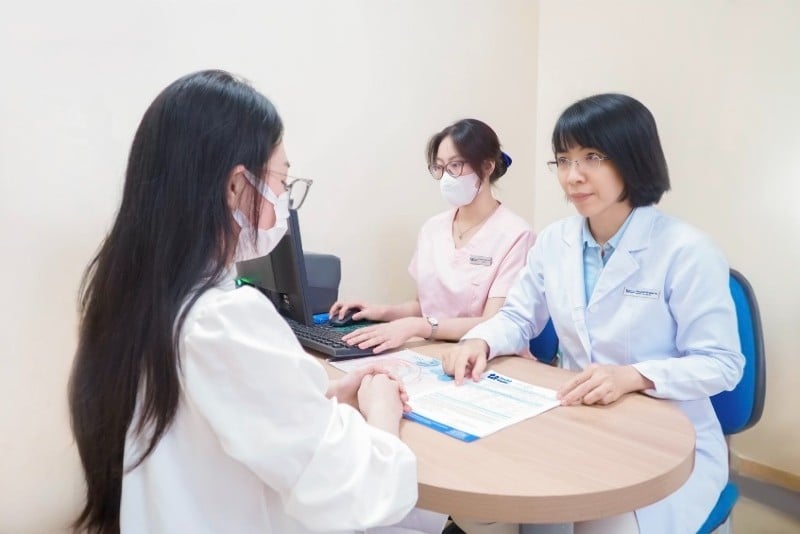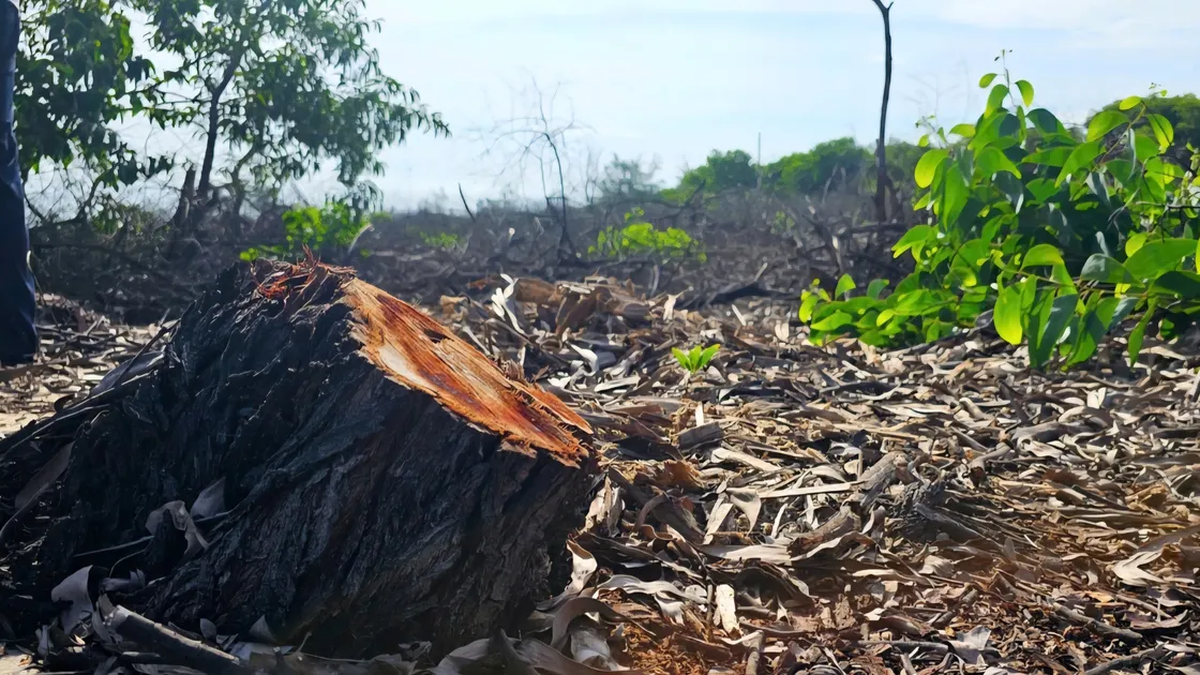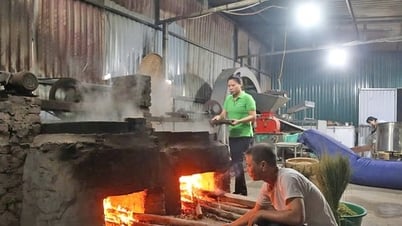According to incomplete statistics, about 5-7% of children worldwide have congenital disorders.
Illustration photo. |
Notably, up to 33% of children with genetic diseases are born to completely healthy parents with no family history. This is largely due to recessive genetic diseases, when a child receives two copies of an abnormal recessive gene from both parents.
People carrying recessive genes often do not show symptoms of the disease, but if both husband and wife carry the disease gene, the possibility of having a child with the disease is up to 25% with each pregnancy.
Many single-gene genetic diseases such as spinal muscular atrophy (SMA), Thalassemia, Hemophilia, cystic fibrosis, G6PD deficiency... can seriously affect the health and survival of children. About half of congenital disorders are caused by mutations in single genes, and can be detected early with modern genetic testing.
MSc. Nguyen Phuong Thao, genetic expert, Center for Fetal Medicine, Tam Anh General Hospital, Ho Chi Minh City, in fact, many families only realize the importance of screening after experiencing loss.
As in the case of Ms. My (31 years old), who gave birth to a baby boy with spinal muscular atrophy, a serious genetic neuromuscular disease that causes the baby to gradually lose the ability to move, swallow, breathe, and die before he was one year old. After the shock, she and her husband did genetic testing before their second pregnancy and discovered that they both carried the SMA gene.
With the help of a doctor, she performed a chorionic villus biopsy at 12 weeks of pregnancy and received good news: The fetus did not carry two copies of the disease gene. My's baby girl was born healthy at 38 weeks.
Another case is that of Ms. Lanh (28 years old) and her husband, whose first child developed normally. However, in the second pregnancy, the fetus was found to have signs of bilateral polycystic kidneys accompanied by severe oligohydramnios at 21 weeks of pregnancy.
Amniocentesis results confirmed that the fetus carried two double heterozygous recessive gene mutations, meaning it received two different mutations on the same gene from both parents, causing life-threatening illness or lifelong kidney failure.
The couple decided to terminate the pregnancy. They then underwent in vitro fertilization and, thanks to PGT-M genetic technology, gave birth to a healthy baby boy at 39 weeks.
Genetic screening before marriage or pregnancy helps couples proactively detect potential genetic risks, thereby choosing safer methods of childbirth such as in vitro fertilization, embryo screening, or planning effective pregnancy management.
During pregnancy, tests such as NIPT (non-invasive testing) from the 10th to 12th week of pregnancy can help screen for early chromosomal abnormalities. If there is any suspicion, the pregnant woman will be assigned a chorionic villus sampling or amniocentesis to determine the exact cause.
Doctor Thao recommends that couples who have given birth to children with birth defects, genetic diseases, a history of stillbirth, repeated miscarriages, unexplained infertility, or have relatives with genetic diseases, should undergo genetic screening.
In addition, Vietnamese people are in the high-risk group for carrying the Thalassemia gene, so they should be screened for this disease before pregnancy to reduce the risk of giving birth to a child with a serious illness.
According to the recommendations of the World Health Organization (WHO) and the American College of Obstetricians and Gynecologists (ACOG), all women who are planning to become pregnant or are pregnant should be screened for the gene for spinal muscular atrophy (SMA). Depending on the wishes of the parents, the doctor may prescribe screening tests for recessive genes on the autosomal chromosomes and sex chromosomes.
In Vietnam, there are about 13 million people carrying the Thalassemia gene mutation, most of whom have no symptoms and do not know they carry the disease gene, leading to the risk of passing the disease on to the next generation.
Every year, our country records about 40,000 children with congenital genetic diseases, including 1,400-1,800 children with Down syndrome, 200-250 children with Edwards syndrome (causing premature death after birth), 1,000-1,500 children with neural tube defects, 300-400 children with congenital hypothyroidism, 15,000-30,000 children with G6PD deficiency, 200-600 children with congenital adrenal hyperplasia, 2,200 children with severe Thalassemia, and thousands of other children with many other dangerous congenital malformations.
With the remarkable development of modern medicine and genetic technology, today we can proactively control and prevent many serious genetic diseases.
Genetic screening is not only a medical preparation, but also a responsible choice to protect the health of future generations. A healthy baby is the result of love, careful preparation and correct scientific knowledge from parents.
Source: https://baodautu.vn/sang-loc-di-truyen-chia-khoa-cho-the-he-khoe-manh-d314612.html









































































































Comment (0)